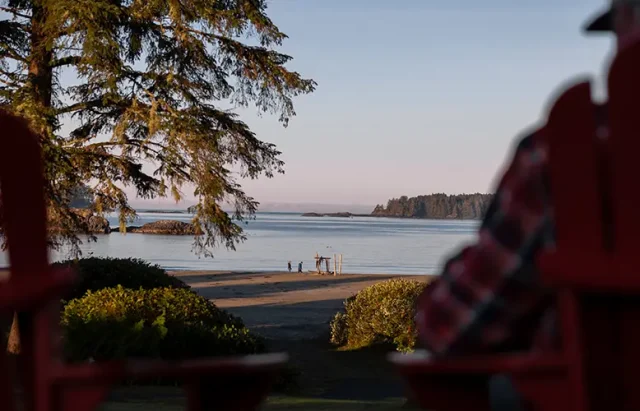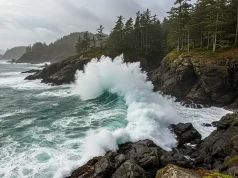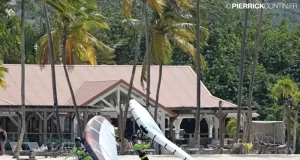
The ƛaʔuukʷiʔatḥ ḥaw̓ iiḥ (Hereditary Chiefs of the Tla-o-qui-aht First Nation) are proud to announce the official recognition of tinwis (pronounced ti-nu-wis) as the name of the historic beach in Tofino, briefly known as MacKenzie Beach.
Located on the west side of the Esowista Peninsula, tinwis—which means “calm beach” in the Tla-o-qui-aht language—has been a gathering place for generations of Tla-o-qui-aht people. The name reflects the Nation’s deep cultural, geographical, and spiritual connection to the site.
The BC Geographical Names Office adopted tinwis on May 15, 2025, following a proposal and extensive consultation led by the Tla-o-qui-aht First Nation. The Nation chose to share this significant milestone with the Tla-o-qui-aht community first, making the announcement during the National Day for Truth and Reconciliation to community members and Tofino residents. This fall’s broader public announcement marks the completion of updates to provincial and federal records, local signage, and tourism materials, ensuring tinwis is reflected consistently across public platforms and maps.
“We’re in a place called tinwis—that means calm waters,” says Saya Masso, Tla-o-qui-aht First Nation’s Manager of Lands and Resources. “To us, it’s always been a place of refuge. When a place has a name in our language, it often tells you what it was used for, or what it provides to our people.”
The renaming was supported by partners including the District of Tofino, Alberni-Clayoquot Regional District, Tourism Tofino, Indigenous Tourism BC, and Destination BC.
“To see the name MacKenzie Beach no longer used—and to formally put the traditional place name tinwis on the map—means the world to me,” adds Masso. “It’s a significant step toward reconciliation and elevating our language back into its rightful place on these lands.”
The official recognition of tinwis forms part of a growing provincial effort to restore Indigenous place names across British Columbia—an act of cultural revitalization and reconciliation that honours the original stewards of these lands.
“Language is so important to us,” says Masso. “Residential schools caused a deep loss of language and understanding. It’s not enough to learn the words—you have to live them. Place names like tinwis help us live our language again.”
The name tinwis will continue to appear on all official maps, wayfinding, and interpretive materials, reinforcing the Tla-o-qui-aht Nation’s enduring presence and cultural legacy on the lands and waters of the west coast.





